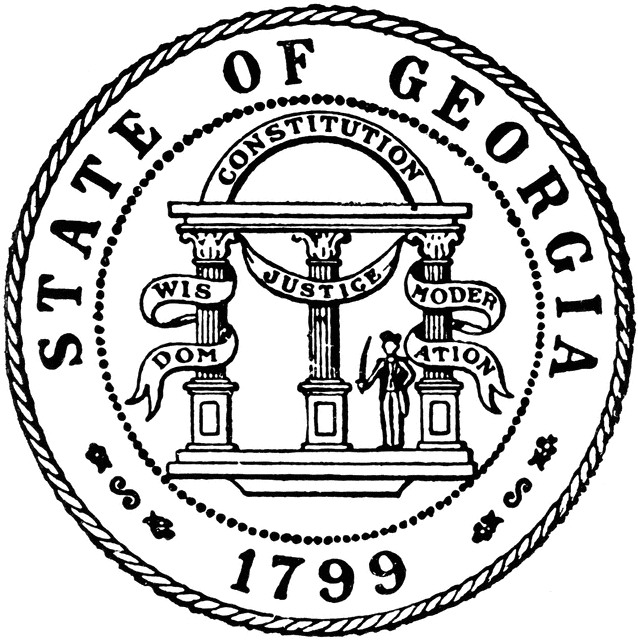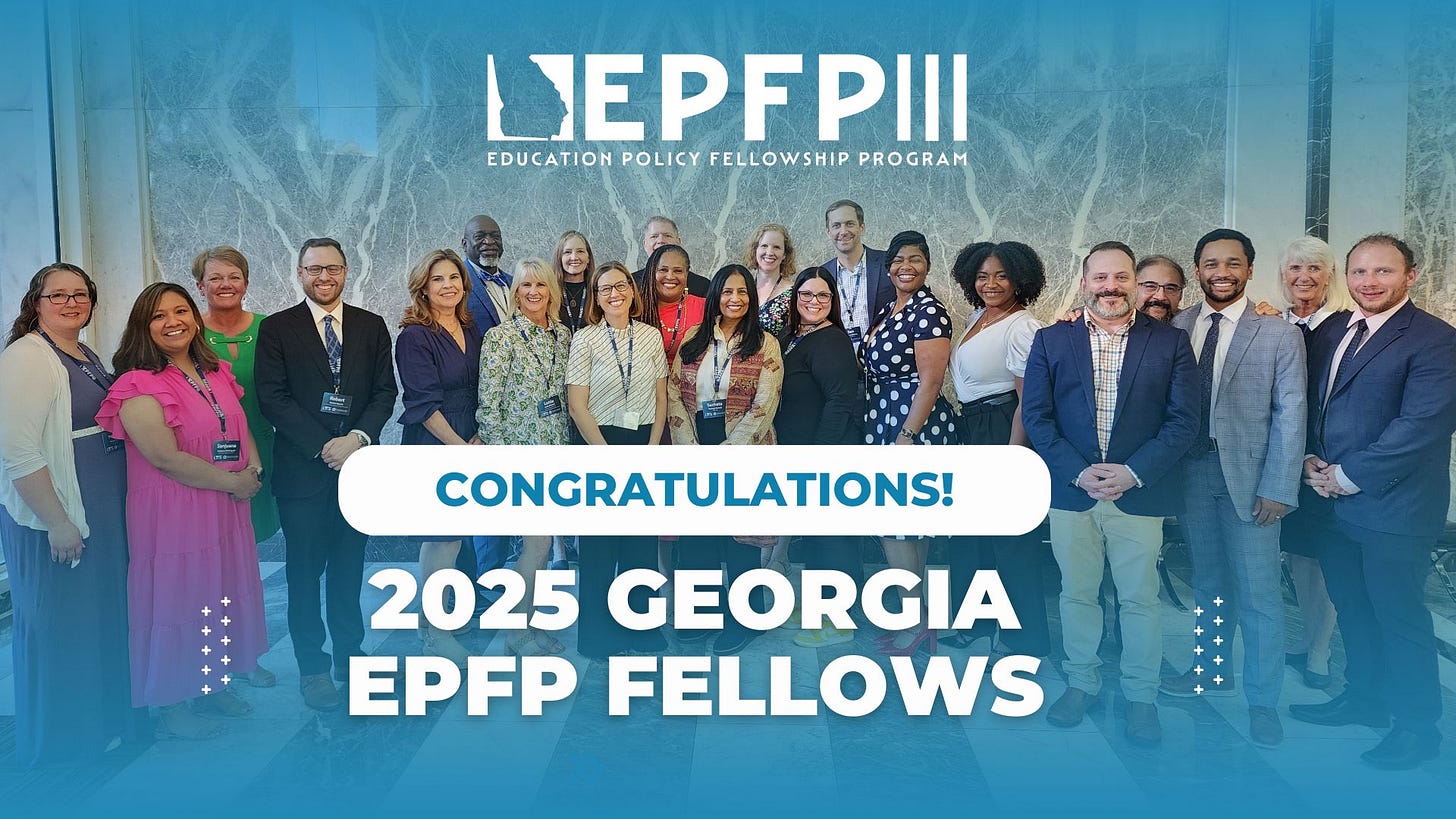Hi Southbound readers, my current season of life hasn’t left margin to write on Southbound as much as I’d like. However, two weeks ago I completed the Georgia Partnership for Excellence in Education’s year-long Education Policy Fellowship Program alongside 22 education professionals from across the state as part of my day job. My class gave me the privilege to share a 10-minute charge to close out our fellowship. I’m sharing an abbreviated version of my remarks. Though focused on education policy, the principles apply more broadly to our current moment.
In February 1799, legislators convened in Louisville, Georgia’s capital at the time, for their annual legislative session. Located southwest of Augusta on the Ogeechee River, the young town was named for King Louis XVI but is pronounced “Lewisville,” unlike its Kentucky counterpart.
After adopting Georgia’s third constitution the year before, the legislature set out to pass other foundational legislation, including the adoption of Georgia’s first state seal—the one we still use today.
It depicts an arch supported by three Corinthian-style pillars, which inspired the University of Georgia’s iconic wrought-iron arch, built decades later.
The seal’s arch says “Constitution,” and a banner weaves between the three pillars. A soldier stands amidst the pillars, representing the military’s defense of the Constitution.
The three pillars represent the three branches of government—Legislative, Judicial, and Executive. But when the legislators created the seal, they chose not to inscribe those words on the pillars. Instead, they used three other words that would become the unofficial motto of Georgia:
Wisdom. Justice. Moderation.

Now, we can—and should—quibble with how a group of wealthy, white men defined these words in 1799—not the way we would define them today. But just as our country’s founding documents can be an anchor for us today, despite their faults, these words can do the same.
The reality is that these words aren’t popular today, whether we admit it or not. However, I think they are exactly the guideposts to follow in our current moment of uncertainty, division, and threats to the rule of law.
💡Wisdom
We’ve all heard definitions of wisdom, the simplest being “knowledge applied.” In education, we tend to get caught up in the latest fads or innovations, and policies seem to come and go in cycles, causing us to miss out on wisdom and remain mired in low outcomes.
To make my point, picture this scenario:
A first-year teacher bursts into the teacher’s lounge with a new idea, excitement overflowing as she shares with a seasoned veteran about how it will revolutionize education. To which the seasoned veteran crosses his arms and counters in a monotone voice, “Yeah, that sounds a lot like such-and-such that we tried back in the 90s, and it didn’t work. Plus, the district pulled funding after a couple years anyway.”
The rookie’s fervor deflates like a needle to a balloon. She responds to that lesson in one of several ways. Maybe she suppresses her new ideas—ideas that we need to reimagine our system—just to keep her head down and go with the flow. Or maybe she keeps pursuing her ideas but without the counsel of veterans, opening the door to mistakes she could have avoided. Or worse still, she leaves education altogether. All bad outcomes.
This scenario plays out all too often in the halls of schools and the halls of the state capitol today. But there is wisdom across generations that we frequently miss without intergenerational relationships like the ones we’ve forged through this fellowship. To solve the challenges we face, we must pair the enthusiasm of youth with the lessons learned from experience.
🏛️ Justice
A controversial word these days, largely due to whatever adjective precedes it in a sentence. Its common usage in support of one’s “side” has diluted its meaning. At its root, justice means fairness. But it means more than that.
In education, it means that zip codes don’t determine opportunity. It means that race, income, or the language spoken at home don’t predict academic success. It means that developmental delays don’t lead to delays in support provided.
We’re so far from that reality, as our day-to-day jobs and the data we reviewed as part of this fellowship often reminded us. At the same time, we find ourselves in a moment where federal education funding and data tracking are in jeopardy. States also may soon have more flexibility to determine how we educate our students. There’s plenty to overwhelm us, but there’s power in forcing ourselves to ask: how can we reframe this shift as an opportunity to rethink and improve rather than only a roadblock preventing progress?
Now, sometimes all that can feel abstract, even unattainable. It’s in those moments we have to remember that justice is also personal, plodding ahead one day at a time.
It’s when a college administrator meets with a student who is on the verge of dropping out and convinces him to stick it out.
It’s when an instructional coach trains a STEM teacher from Miller County on chromatography and provides her with the equipment she needs to bring her lessons to life.
It’s when an education professor hosts a dinner on campus for future Hispanic educators, demonstrating that they belong and that they have someone to show them the way.
It’s when a state government leader advocates for a universal literacy screener that will identify students who need support to read on grade level.
It’s when an education lobbyist notches a hard-fought legislative win for students and educators during the session.
Each of us plays a part, even if it may not feel like it most days. Sometimes the reminder that we’re in this together can keep on the path forward.
⚖️ Moderation.
This one is really unpopular these days. It’s seen as the mushy middle. The people pleaser.
“Who needs moderation right now—have you seen what ‘they’ are doing? If you don’t hit back, ‘they’ will walk all over you.”
These interpretations of moderation couldn’t be further from the truth. In reality, moderation represents a willingness to step back and take a deep breath. To not get caught up in passions or polarization. To not attach ourselves onto the pendulum as it swings from one side to the other. We have plenty of those in education:
One side: “We need standardized testing in each grade level to measure and close achievement gaps.”
> > > Pendulum swings….
Other side: “Standardized testing narrows the curriculum and gives a simplistic picture of outcomes. We should get rid of them. Have you ever seen someone doing a multiple choice test on their job?”
Or this one: “Everyone should pursue a four-year degree, it’ll pay off in the long-run, regardless of the cost.”
> > > Pendulum swings….
Other side: “You don’t need college; it’s overpriced and will saddle you with debt without job prospects. Haven’t you seen the guy at the coffee shop with a master’s degree?”
Moderation finds the middle way. It embraces nuance. It pushes for change, while building coalitions. It holds firm to its values, while remaining open to dialogue.
It’s what allows us to sit at the table with people who think differently on certain issues and still find common ground where we can. It’s what turns policy ideas into progress—not perfection, and not through force—but through persistence and partnership.
It’s a foundation we’ve laid through this fellowship, and one that we’ll have to swim upstream daily to maintain.
In closing, as we look to what’s next, let’s keep Georgia’s motto front of mind: Wisdom. Justice. Moderation.
Wisdom is the map. Justice is the gas pedal. Moderation is the brake. We need all three to arrive at our destination: a better future for all of Georgia’s children.
Thank you for reading Southbound. If you liked this article, please click the ♥️ icon at the bottom of this post, leave a comment, or forward it to a friend. Doing so provides me with helpful feedback and helps others find the article.





As always, very Thoughtfully written as well as thought provoking! Ah, that we had more like this group who have the ability to share and listen and arrive at well-considered ideas which lead us forward.
My prayer is that more of us will follow the motto of our home state in the years to come as we fulfill our legacy.
Thanks for sharing! So appropriate for our times. I always feel that the future is bright when I read your posts. So appreciative of you and your very thoughtful way of responding to situations!